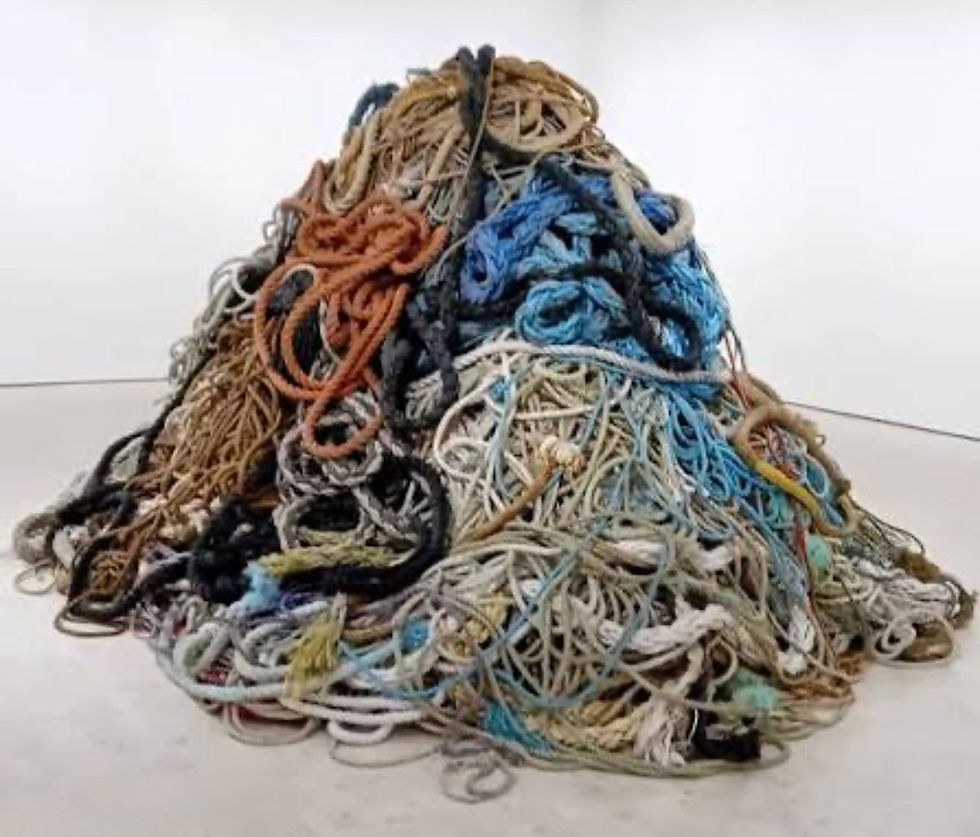Plastics Recycling: More Problem Than Solution?
- Sarah Edwards
- May 21, 2024
- 3 min read
Updated: Jun 29, 2024
A recent study by the University of Strathclyde reveals that alarming amounts of microplastics are being produced by an unnamed plastics recycling plant in the UK. This discovery highlights a somewhat ironic dark side to an industry that many have touted as a sustainable solution to plastic pollution.
New evidence raises concerns

Researchers sampled the facility’s
wastewater before and after the introduction of a filtration system. Before filtration, 13% of the plastic processed was being released into the water as microplastics. After filtration, it decreased to 6%—but this would still equal about 1,366 metric tonnes of microplastics annually.
And the problem isn’t just in the water; the study also found high levels of microplastics in the air around the recycling plant.
What are microplastics?
Microplastics are tiny plastic particles up to 5mm in diameter (or 5000 microns), according to the UNEP definition. Microplastics can be categorised into two types: primary and secondary. Primary microplastic particles are manufactured intentionally at that size (e.g. cosmetic facial scrubs with microbeads), while secondary microplastics result from the breakdown of larger plastic items (e.g. water bottles, tyres, bags).

In this particular University of Strathclyde study, more than 80% of the microplastic particles found in the (filtered) water at the facility were smaller than 5 microns (0.005mm), and more than 90% were smaller than 10 microns (0.01mm). Of the microplastic particles found in the air, more than 60% were smaller than 10 microns (0.01mm).
Microplastics are considered a threat to the environment, wildlife, and potentially human health, as they have the capacity to build up within the food chain, release harmful substances, and concentrate and transport various chemicals, microorganisms, and pathogens.
Why is this research worrying?
Along with the direct harm that the microplastic pollution emitted by this individual recycling plant could cause to ecosystems, this important research brings up a host of questions and concerns about the broader implications of the global plastic recycling industry.
The unnamed facility represents a 'best case scenario,' according to lead researcher Erina Brown. The plant is considered state-of-the-art, and the presence of a water filtration system at all may make it one of the least pollutive facilities of its kind. Plus, this study had limitations on the size of plastic particles it could investigate, so the researchers assume that there are 'many, many, many' smaller particles that went undetected.

With all this in mind, it is worrying to imagine the vast amounts of microplastics that may be emitted from recycling plants around the world on a daily basis, potentially going unfiltered, unmeasured, and unregulated. More research is needed on this topic, especially as scientists continue to uncover links between microplastics and human health issues.
Discussions to determine the details of the UN Global Plastics Treaty, which aims to end plastic pollution, are ongoing. With four out of five meetings completed thus far, it is still yet clear how the treaty will approach plastics recycling and the evidence discussed in this blog post. Hopefully the UN’s intention to address the 'full life cycle' of plastics will shine through in the treaty’s outcomes, including a nuanced approach to reforming the recycling industry, rather than simply promoting more recycling.
So, what is the solution?

While wastewater filtration appears to hold promise for reducing microplastic pollution from recycling plants, this research emphasises the underlying need to #BreakFreeFromPlastic altogether.
Erina Brown, the study’s lead researcher, said it best: 'For me, [the study] highlights how drastically we need to reduce our plastic consumption and production.'
+++++++++++++++++
For more information contact: info@scarabtrust.org.uk
Images:
plastic bottles recycling - Image by Hans (ST ref: 1162)
microplastic plain background - 5Gyres, courtesy of Oregon State University (ST ref: 1308)
hand earth plastic bag - Image by Vikentiy Elizarov (ST ref: 1141a)
TurnOffThePlasticTap - Image by Von Wong (ST ref: 1310)


